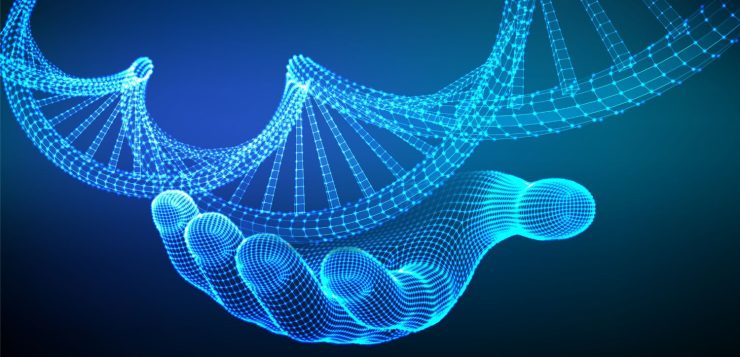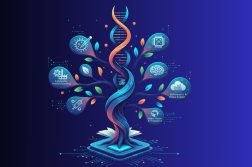<span style=”font-weight: 400;”>The biotechnology curriculum has undergone a profound transformation over the past few decades, driven by rapid scientific advancements and shifting industry needs. What began as a specialized study focused mainly on molecular biology and genetics has now expanded into a dynamic, interdisciplinary discipline that encompasses emerging technologies, innovative applications, entrepreneurship, and ethical considerations. The evolution of biotechnology education reflects the growing importance of this sector globally and in India, where it is seen as a key driver for economic growth, healthcare innovation, sustainable agriculture, and environmental solutions.</span>
<h3><b>From Basics to Interdisciplinary Integration</b></h3>
<span style=”font-weight: 400;”>Early biotechnology curricula focused primarily on fundamental subjects such as cell biology, biochemistry, microbiology, and genetic engineering. These core areas established a strong foundation in understanding biological processes at molecular and cellular levels. However, as the field advanced, the need for integration with other disciplines became apparent. Today‚Äôs biotechnology education bridges biology with computer science, engineering, data analytics, and chemistry, creating interdisciplinary programs that equip students with diverse skill sets.</span>
<span style=”font-weight: 400;”>Recent curricula incorporate bioinformatics, computational biology, and systems biology to manage and interpret vast biological datasets generated by high-throughput sequencing and ‚Äėomics‚Äô technologies. Such integration prepares students to tackle complex challenges such as precision medicine, genomics, and synthetic biology.</span>
<h3><b>Incorporation of Emerging Technologies</b></h3>
<span style=”font-weight: 400;”>Advancements in Artificial Intelligence (AI), Machine Learning (ML), and Internet of Things (IoT) are revolutionizing biotechnology education. Universities now include AI-driven data analysis, predictive modeling, and automation tools in their syllabi to provide hands-on experience with industry-relevant technologies. Virtual and augmented reality labs are increasingly used to simulate experiments and visualize intricate biological systems, enhancing conceptual understanding and engagement.</span>
<span style=”font-weight: 400;”>Gene editing techniques, especially CRISPR-Cas9, have become a central topic, highlighting ethical and practical aspects of genome engineering. Stem cell research, regenerative medicine, and bioprinting have also found a place in modern curricula, reflecting burgeoning research areas with vast therapeutic potential.</span>
<h3><b>Emphasis on Entrepreneurship and Innovation</b></h3>
<span style=”font-weight: 400;”>Modern biotechnology curricula recognize that scientific knowledge alone is insufficient in today‚Äôs fast-evolving landscape. Institutes emphasize entrepreneurship training, innovation management, and startup incubation. Students learn to translate lab discoveries into viable commercial products, navigating regulatory pathways, intellectual property laws, and market dynamics.</span>
<span style=”font-weight: 400;”>Programs often collaborate with incubators and industry partners to offer experiential learning opportunities, fostering a startup culture. Initiatives such as business plan competitions and innovation challenges motivate students to apply their scientific acumen to real-world problems.</span>
<h3><b>Focus on Sustainability and Ethics</b></h3>
<span style=”font-weight: 400;”>Sustainability has emerged as a critical theme in biotechnology education amid rising environmental concerns. Courses teach students to develop eco-friendly biotechnological processes, green chemistry applications, and bioremediation strategies to reduce waste and reliance on fossil fuels.</span>
<span style=”font-weight: 400;”>Ethics education has become integral, addressing moral dilemmas in genetic modifications, cloning, clinical trials, and biosecurity. Students are encouraged to engage in responsible innovation, weighing societal impacts alongside scientific breakthroughs.</span>
<h3><b>Globalization and Collaborative Learning</b></h3>
<span style=”font-weight: 400;”>Biotechnology education today is highly globalized, with many Indian institutes establishing international collaborations for faculty exchange, joint research, and dual degree programs. Online platforms and Massive Open Online Courses (MOOCs) further facilitate worldwide access to advanced biotechnology content.</span>
<span style=”font-weight: 400;”>Students benefit from exposure to diverse perspectives, cross-cultural teamwork, and participation in global scientific networks. This prepares them to work in multinational enterprises and contribute to international biotechnology initiatives.</span>
<h3><b>Skill Development for Future Careers</b></h3>
<span style=”font-weight: 400;”>The evolved curriculum emphasizes both technical expertise and soft skills such as critical thinking, communication, teamwork, and adaptability. Interdisciplinary projects, internships, and research experiences equip graduates to navigate diverse roles in academia, industry, healthcare, agriculture, policy, and entrepreneurship.</span>
<h3><b>Conclusion</b></h3>
<span style=”font-weight: 400;”>The biotechnology curriculum‚Äôs evolution from a narrow focus on molecular biology to a broad, interdisciplinary, and technology-driven educational paradigm reflects the sector‚Äôs pivotal role in addressing global challenges. By integrating emerging technologies, entrepreneurship, ethics, and sustainability, educational institutions are preparing students not only to contribute to scientific innovation but also to lead the biotechnology industry‚Äôs future growth.</span>
<span style=”font-weight: 400;”>As biotechnology continues to reshape medicine, agriculture, environment, and industrial processes, its education will keep evolving to meet new demands. This dynamic curriculum ensures that students are equipped with the knowledge, skills, and values to navigate and shape the exciting landscape of biotechnology in the coming decades.</span>



